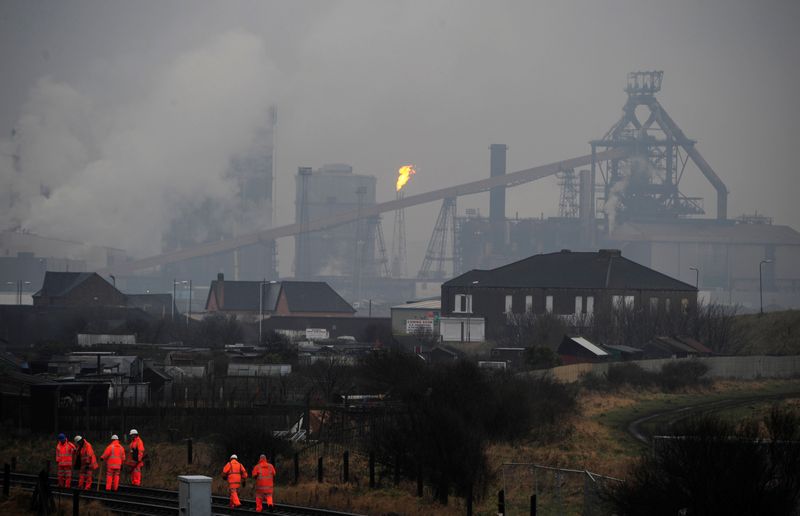Factory slump causes UK economy to stagnate in August -PMI
2022.08.23 13:30

FILE PHOTO: Corus steelworks is seen at Teesside, northern England January 26, 2009. REUTERS/Nigel Roddis/File Photo
By David Milliken
LONDON (Reuters) – Growth in Britain’s private sector slowed to a crawl in August as factory output fell and the larger services sector eked out only a modest expansion, adding to signs that recession may be looming, a closely watched survey showed on Tuesday.
The S&P Global/CIPS Purchasing Managers’ Index (PMI) composite flash estimate dropped to 50.9 in August from 52.1 in July, its lowest since February 2021 and close to the 50 level that separates growth from contraction.
Economists polled by Reuters had forecast the index would fall less sharply to 51.1.
While activity in the services sector almost held at July’s pace, the manufacturing component tumbled to 46.0 in August from 52.1 in July, its lowest since May 2020 in the depths of the COVID-19 pandemic and below all forecasts in a Reuters poll.
“Waning customer demand amid the weaker economic outlook, and shortages of both staff and inputs, were reported to have hit goods producers hard,” S&P Global (NYSE:SPGI) economist Annabel Fiddes said.
The Bank of England has warned that Britain is likely to slip into a recession at the end of 2022 which will last until 2024, as soaring energy bills, mostly due to Russia’s invasion of Ukraine, push consumer price inflation above 13% in October.
Economists at Citi on Monday forecast that inflation would exceed 18% in January, when regulated household energy tariffs are due to rise again.
Tuesday’s data did show some signs of easing inflation pressures in other parts of the economy, reflecting a fall in prices of some raw materials such as metals.
Manufacturers’ input costs rose at the slowest pace since November 2020, although a continued tight labour market pushed up services companies’ costs slightly. Overall, businesses raised prices for consumers by the least in seven months.
“Companies often mentioned that intense market competition and efforts to attract new work had limited overall pricing power,” S&P Global said.







